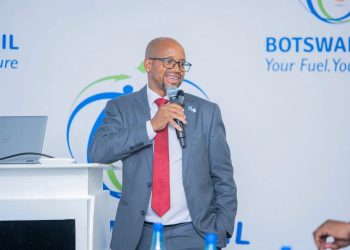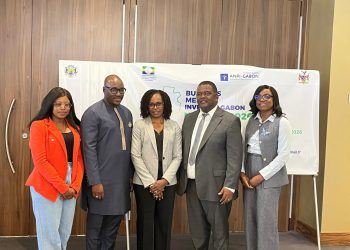
The Ministry of Mines and Energy says Namibia will be pushing for more investments into exploration activities as the subsurface remains promising.
Ministry of Mines and Energy Petroleum Commissioner Maggy Shino said the Ministry is expecting to start receiving oil appraisal reports for the ongoing drilling activities from April.
She added that as soon as the results are finalised, the Ministry will communicate the volumetrics and commence the preparations for the next phase of the industry.
With all these developments happening offshore Namibia, in the Orange Basin, Shino said Lüderitz is poised for mass infrastructure development due to its proximity to oil and gas discoveries, aided by large-scale renewable energy projects planned in the harbour town.
“I would like to inform you that the Namibian subsurface has continued to deliver beyond our expectations,” she said.
“Looking at the data analysis, the prospectivity and the untapped potential of the Namibian basin is huge with everything having been bigger and better than we anticipated thus far.
“Currently, there are four drilling rigs offshore Namibia in our prolific Orange Basin conducting both exploration and appraisal drilling campaigns operated by Shell, Total and Galp.
“Our expectations towards the end of the year are to continue with appraisal drilling with multiple-well campaigns and also test the new plays identified by ReconAfrica, Rhino Resources and Chevron together with their joint venture partners,” Shino added.
With current reprocessing and ongoing interpretations of existing data, the potential for Namibia, she said, is not only confined to the Orange Basin but extends throughout Lüderitz, cutting across Walvis Bay and all the way to the Namib.
The Petroleum Commissioner revealed this at the ongoing International Association for Drilling Contractors (IDC) Africa Conference, where she further said Namibia’s strategy for the next few years is to drive as many investments into the exploration activities, embracing technological advancements and adding value to existing data.
“This is in addition to creating smart partnerships that enable the acquisitions of new proprietary and multi-client seismic data, and maintaining an open licensing regime to ensure that we have a large portfolio of oil and gas companies in search of more petroleum resources on the Namibian continental shelf,” she added.
“At the same time, it is our hope that within the upcoming months, final investment decisions will be made on the discoveries that have been made by TotalEnergies, Shell, Galp and the existing Kudu Gas Field operated by BW Energies.”
Shino further underscored that to enable Namibia to propel smoothly into the development phase of the industry and consequently first production, infrastructure development is required.
“For this a call is hereby made for the designation of the town of Lüderitz to be the energy hub,” she said.
“The rationale behind this designation is because the town of Lüderitz has demonstrated an exceptional potential to play a pivotal role in shaping our nation’s energy future due to its strategic geographic location and proximity to current discoveries, existing infrastructure and facilities with potential for growth, the renewable energy potential and our commitment to sustainability and environmental responsibility.
“In order to make this dream a reality, investment in infrastructure development is key. This does not however eliminate the excellent service that is currently offered from Walvis Bay town, which we are observing to be getting slowly but surely congested,” she reiterated.
She extended an invitation to investors to join the journey of growth, as it will be an investment in a sustainable energy future as the nation navigates the complexity of the energy transition.
Shino also used the platform to clarify why Namibia is a player and regulator in the oil industry and called for players and participants to undertake activities with profound responsibility.
“A responsibility to explore, produce and utilise our petroleum resources upholding the highest environmental standards, minimising environmental impact, maximising efficiency, and prioritising the positive economic impact it has on the Namibian people and our development agenda,” she said.







